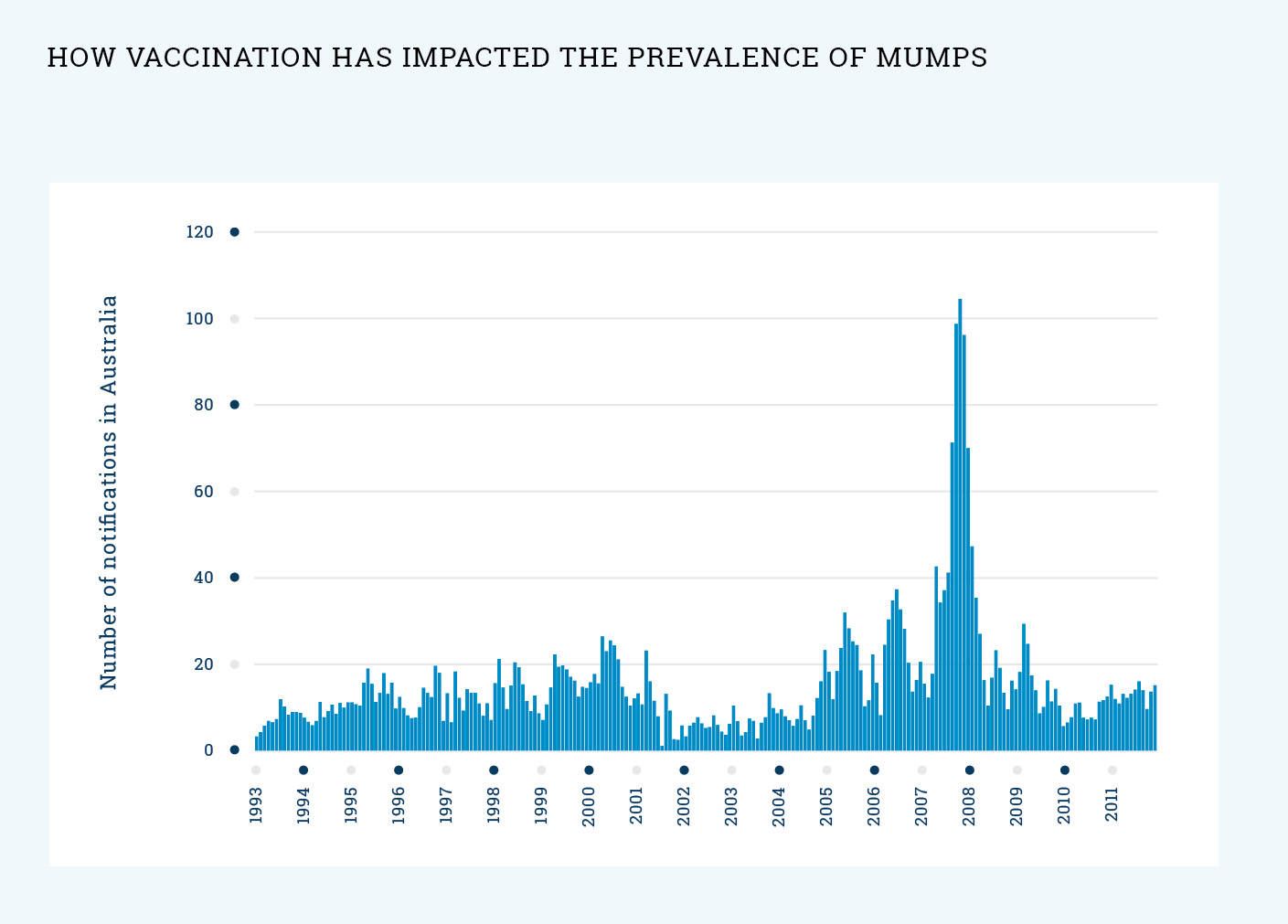Mumps
Key facts
-
Mumps is a virus that causes headaches, sore throat, fevers (high temperatures), aching muscles and painful swellings in the jaw area.
-
Mumps can cause brain infections such as meningitis or encephalitis, which on rare occasions can lead to permanent deafness or death.
-
Mumps can cause swelling and inflammation of the testicles after puberty in males, which on rare occasions can lead to reduced fertility or infertility.
-
The combination vaccines that protect against mumps (MMR and MMRV), are the best way to protect your child from mumps.
On this page
- What is mumps?
- What will happen to my child if they catch mumps?
- What vaccine will protect my child against mumps?
- When should my child be vaccinated?
- How does the mumps vaccine work?
- How effective is the vaccine?
- Will my child catch mumps from the vaccine?
- What are the common reactions to the vaccine?
- Are there any rare and/or serious side effects to the vaccine?
- What impact has vaccination had on the prevalence of mumps?
